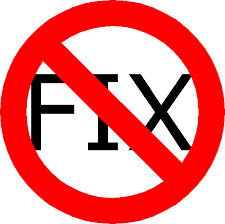The Entrepreneur’s Journey: Taking the First Steps
So you’ve done it. You’ve pushed your breakfast round the plate, wondered why you weren’t with your family and said, ‘That’s it. There has to be a better way.’
And a few days later you’ve burned your bridges – or at least written a letter which can be boiled down to two words: ‘I resign.’

You’ve committed yourself to the entrepreneur’s journey. Now you need to take the first steps: you need to write a business plan and you need to raise some money.
The chances are that you’d already ‘written’ a business plan before you wrote your resignation letter. I’ve seen potential entrepreneurs – for now, still employed – with business plans at every stage of completion: from neatly bound, carefully worded documents complete with a three year cash flow forecast – to four lines on the back of the proverbial envelope.
For some people the lead up to the resignation letter is calculated and carefully worked out. For others – as it was for me – it’s the moment when that gnawing sense of unease suddenly crystallises. When there really does ‘have to be something better than this – and it has to be now.’
Most of us know the basics of a good business plan – but I am always conscious that this blog is also being read by people who haven’t yet been tempted to tell the MD what they really think… So let me recap the essential details of a business plan:
· What are you going to do? Simply put, what’s the business about?
· What are your goals and objectives?
· Why are you the person to make it work?
· What’s the market? And what’s your marketing plan?
· Who are your competitors? What makes you different?
· If you’re designing and/or developing a product, what are your plans for that?
· Operations and management: how will the business function on a day to day basis?
· How much money do you need? If you’re investing money in the business, where is that coming from? And if you’re borrowing money, how are you going to pay it back?
· And lastly some numbers – projected profit and loss and cash flow forecasts
Those are the basics – but this is The Alternative Board. We’re about a lot more than the basics. We’re about keeping your work/life balance well and truly balanced. About the business working for you, not – as the vast majority of entrepreneurs find – you
working for the business. So your business plan needs to contain something else – something you need to get right from the outset.
Your business plan needs to contain two commitments – to yourself and to your family. To yourself a commitment that you’ll take time off, that you’ll make the time to keep fit – mentally and physically – and that you’ll invest time and money in self-improvement. Because if you don’t grow, your business cannot grow.
Secondly, a commitment to the people you love. That you’ll be there for them. That you won’t have your body at home and your soul back at the office. However high up the mountain you climb, the view is a lot better if you’re sharing it with someone.
I also like to see a business plan contain a statement of values: this is what we believe in, these are the ethics that underpin the business. Your business needs to be profitable: it needs to be one you’re proud of as well.
And now let me backtrack to the business plan. Because there at the bottom is the thorny question of finance. How much money do you need to start the business? Where is it going to come from and – if you’re borrowing the money – what are you going to use for security? Despite the increasing popularity of new initiatives like Funding Circle, Kickstarter campaigns and venture capital investors, the bank is still far and away the most popular option – and the bank will ask for security. Personal guarantees are never far away for the owners of most SMEs and in many cases, neither is your house.
This is the moment when the price of building your business really hits home. This is the moment when you say to your husband/wife/partner, ‘The house is on the line. The bank want some security and, I’m sorry, that means the house.’
That’s a difficult moment for your relationship. The house you bought together, where you’re raising your family: the house you have plans for… Suddenly there’s the spectre of someone else holding the keys: of a letter arriving from the bank politely inviting you to move out. However much someone loves you, that’s a difficult moment. It’s the moment you realise it’s not just you that will be paying the price.
Which is why that line in the business plan is so important. Time with your family. Yes, you’re building a business – but making sure you don’t miss the Nativity Play is every bit as important. Fortunately, you’re among friends: everyone at TAB UK is committed to making sure you’re sitting proudly in the front row.


